October 12, 2023 •
Meet Our Expert – Mario Dalessandro, JD
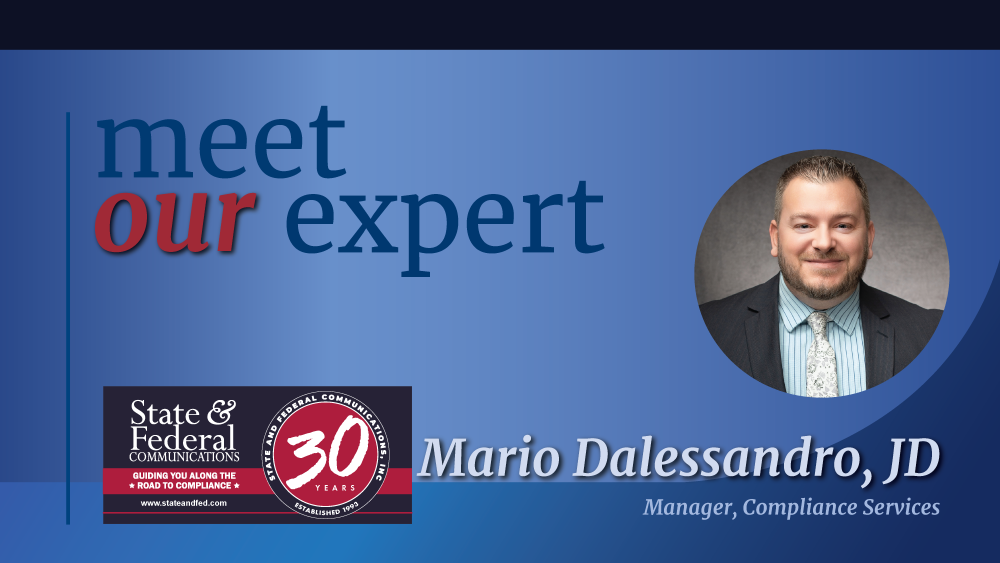
What are your areas of expertise? I am part of the compliance department and provide lobbying compliance guidance. How long have you been with State and Federal Communications? I have been with State and Federal Communications for over four years. […]
What are your areas of expertise?
I am part of the compliance department and provide lobbying compliance guidance.
How long have you been with State and Federal Communications?
I have been with State and Federal Communications for over four years.
How do you help our clients?
I help answer state and local lobbying law questions from our clients. I also file lobbying registrations and reports for our clients.
September 12, 2023 •
Ask The Experts – New York’s New Ethics Training Requirements
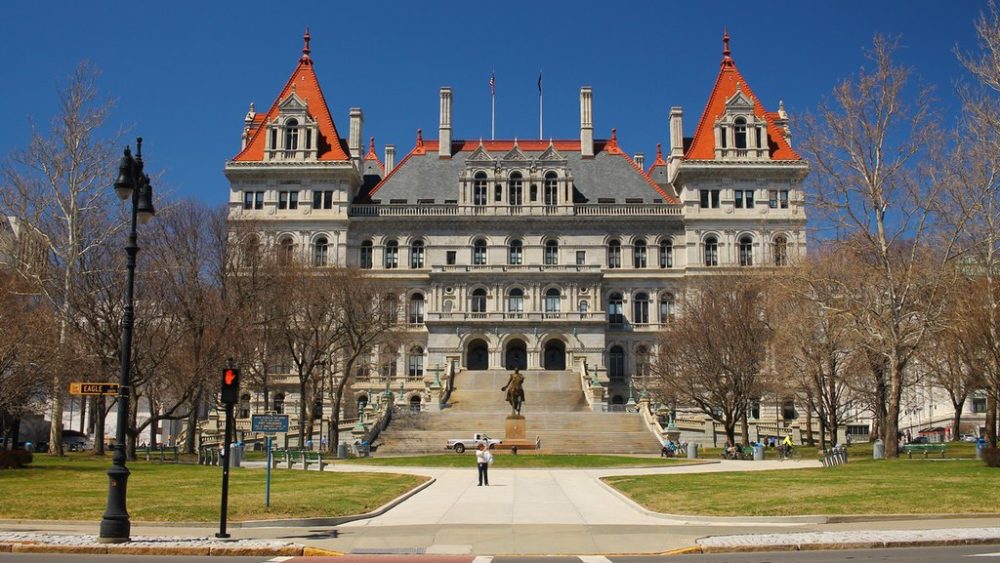
NY State Capitol - by formulanone
Q: I heard New York has new ethics training requirements. What do I need to know to be compliant? A: That is correct. The New York State Commission on Ethics and Lobbying in Government (COELIG) has expanded the ethics training […]
Q: I heard New York has new ethics training requirements. What do I need to know to be compliant?
A: That is correct. The New York State Commission on Ethics and Lobbying in Government (COELIG) has expanded the ethics training requirements as part of the new Ethics Reform Act of 2022. All lobbyists (Principal, Individual, and In-House lobbyists), contractual clients, and beneficial clients listed on a submitted 2023-2024 Statement of Registration are required to take this new training in 2023 and certify completion of the training requirement on the Lobbying Application website. The training requirement is triggered by and applicable to those individuals and entities listed on a lobbyist or client Statement of Registration once the registration is submitted.
For the purposes of training compliance by organizations listed as a lobbyist or client, the Chief Administrative Officer of the organization is responsible for taking the training. Individuals associated with 2023-2024 registrations submitted on or before January 18, 2023, had an extended training due date of March 18, 2023. Those individuals associated with a 2023-2024 registration submitted after January 18, 2023, have 60 days from the registration submission date to complete and certify the training. Following completion of the initial training, individuals will be required to take a refresher training every three years.
Individuals may access the course through a hyperlink on the COELIG website or directly at https://lobbyingtraining.ethics.ny.gov/
December 8, 2022 •
Are You Engaged in Grassroots Lobbying in New York? | Ask the Experts
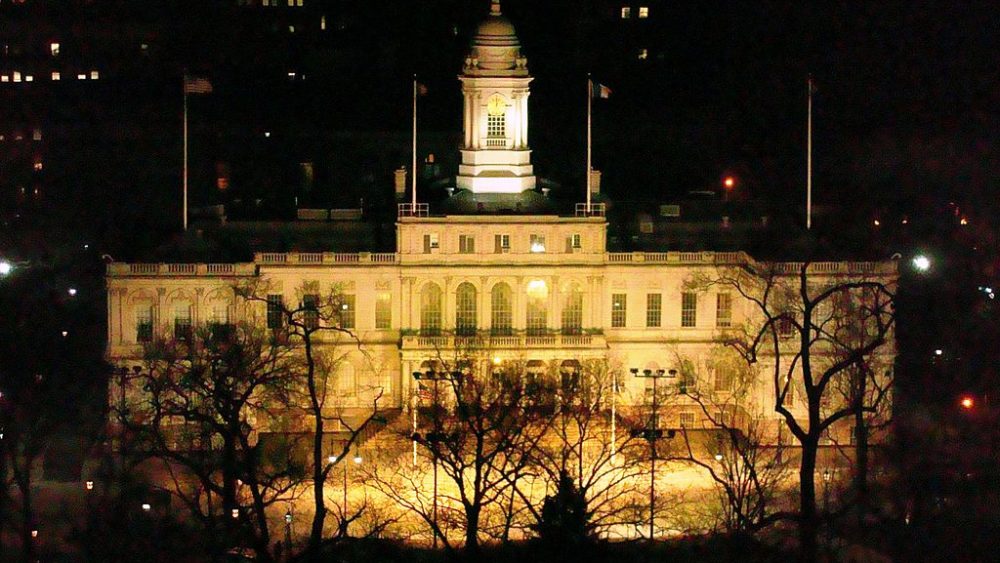
New York City Hall by Beyond My Ken
Q: I heard New York City requires registration and reporting for grassroots lobbying? Who is required to register and how do I comply with all the reporting requirements? A: Yes, if an individual’s compensation or expenditures for grassroots lobbying exceeds […]
Q: I heard New York City requires registration and reporting for grassroots lobbying? Who is required to register and how do I comply with all the reporting requirements?
A: Yes, if an individual’s compensation or expenditures for grassroots lobbying exceeds $5,000 in the aggregate during a calendar year. Lobbying is considered any attempt to influence city officials, therefore all grassroots campaigns would be considered lobbying. The city law reflects the existing state law requiring registration and reporting for state lobbyists.
Once a grassroots campaign reaches the $5,000 lobbying threshold, bi-monthly periodic reports, an annual report, and fundraising and political consulting reports must be filed. Fundraising and political consulting reports are filed on the same bi-monthly schedule as the periodic reports.
For the bi-monthly periodic reports and the annual report, make sure you keep track of compensation, expenses, subjects lobbied, and names of the person and agencies lobbied. For the fundraising and political consulting reports, you will need to track compensation paid for fundraising and/or political consulting activities, a list of all persons or entities contracted for the purpose of providing fundraising and/or political consulting services, and the total dollar amount raised for each candidate for which such activities were performed.
Don’t forget when it comes to websites, a social media communication constitutes a grassroots lobbying communication when:
- References otherwise implicate an action covered by the term lobbying or lobbying activities;
- Takes a clear position on the action question; and
- Includes a call to action (i.e., solicits or exhorts the public, or a segment of the public, to contact a public official).
When grassroots lobbying through a social media communication is undertaken by an organization, through the organization’s social media account, this activity is reportable lobbying activity by the organization. When grassroots lobbying through a social media communication is undertaken by an individual, through their personal social media account, this activity is not reportable lobbying activity unless such individual is specifically retained by a client for such social media activity. Any expenses incurred to create, promote, place, or otherwise highlight an individual’s personal social media activity are reportable by the party incurring the expenses. A consultant’s activity on a grassroots campaign may be considered reportable lobbying if the consultant controlled the delivery and had input into the content of the message.
March 11, 2022 •
Ask the Experts – Hiring a Former Public Official

Question: Our company is in the process of hiring a former public official. Are there any issues we should be aware of during this process? Answer: There are some jurisdictions with revolving door policies restricting what former officials or employees […]
Question: Our company is in the process of hiring a former public official. Are there any issues we should be aware of during this process?
Answer: There are some jurisdictions with revolving door policies restricting what former officials or employees can do once they have entered the private sector. These restrictions are in place to avoid the appearance of impropriety.
Many states require a cooling-off period when officials leave office and transition to the private sector. In South Carolina, a former public official is prohibited, for one year after terminating public service or employment, from serving as a lobbyist or representing clients before the agency or department on which the individual formerly served in a matter the individual directly and substantially participated during public service or employment. The restriction also prohibits a former public official from accepting employment if the employment is from a person who is regulated by the agency or department on which the individual served or was employed and involves a matter in which the individual directly and substantially participated during public service or public employment. A public official who participates directly in procurement may not resign and accept employment with a person contracting with the governmental body if the contract falls or would fall under the individual’s official responsibility.
New York law includes a similar restriction but requires a two-year cooling-off period. A former state officer or employee is prohibited, within two years after termination of employment, from appearing or practicing before such state agency or receiving compensation for any services rendered by such former officer or employee on behalf of any person, firm, corporation, or association in relation to any case, proceeding, or application or other matter before such agency. In New York, a former state officer or employee is prohibited, after the termination of employment, from appearing, practicing, communicating, or otherwise rendering services before any state agency or receive compensation for any such services rendered by such former officer or employee on behalf of any person, firm, corporation, or other entity in relation to any case, proceeding, application, or transaction with respect to which such person was directly concerned and in which the individual personally participated during the period of service or employment or which was under the individual’s active consideration.
These are just a few examples of revolving door restrictions. We advise you follow best practices to verify the rules in your jurisdiction.
—
Here is your chance to “Ask the Experts” at State and Federal Communications, Inc. Send your questions to experts@stateandfed.com. (Of course, we have always been available to answer from clients that are specific to your needs, and we encourage you to continue to call or email us with questions about your particular company or organization. As always, we will confidentially and directly provide answers or information you need.) Our replies are not legal advice, just our analysis of laws, rules, and regulations.
March 22, 2021 •
Idaho Legislature Shuts Down Amid Covid-19 Surge
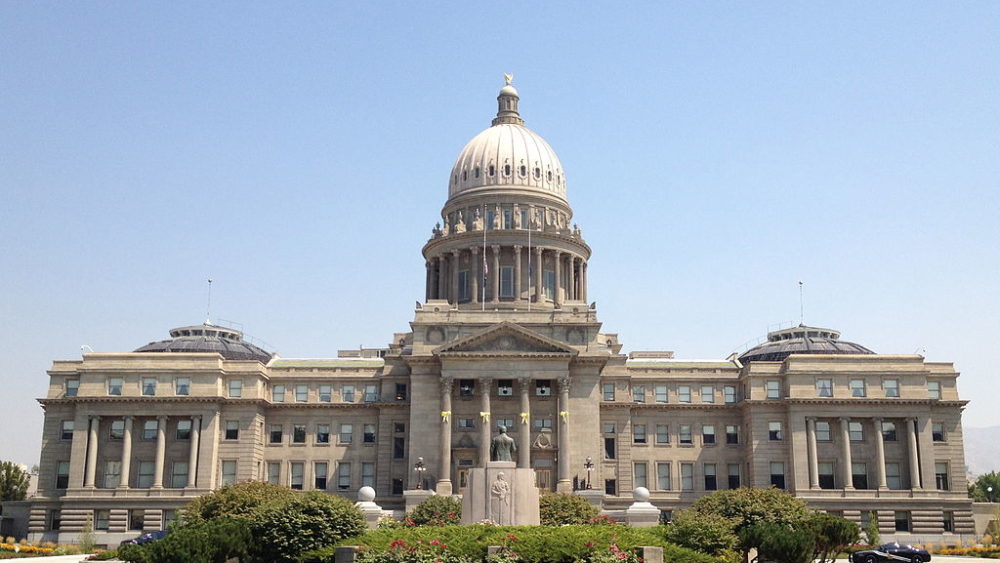
Idaho Capitol Building - JSquish
The Idaho Legislature voted to close down until early April after a coronavirus outbreak among members of the state House. The recess, which will last until April 6, comes after six members in the lower chamber tested positive for the […]
The Idaho Legislature voted to close down until early April after a coronavirus outbreak among members of the state House.
The recess, which will last until April 6, comes after six members in the lower chamber tested positive for the virus.
The recess will postpone debates on significant issues, including setting the state budget.
March 22, 2021 •
Nevada Legislative Counsel Bureau Opens Lobbyist Online Registration
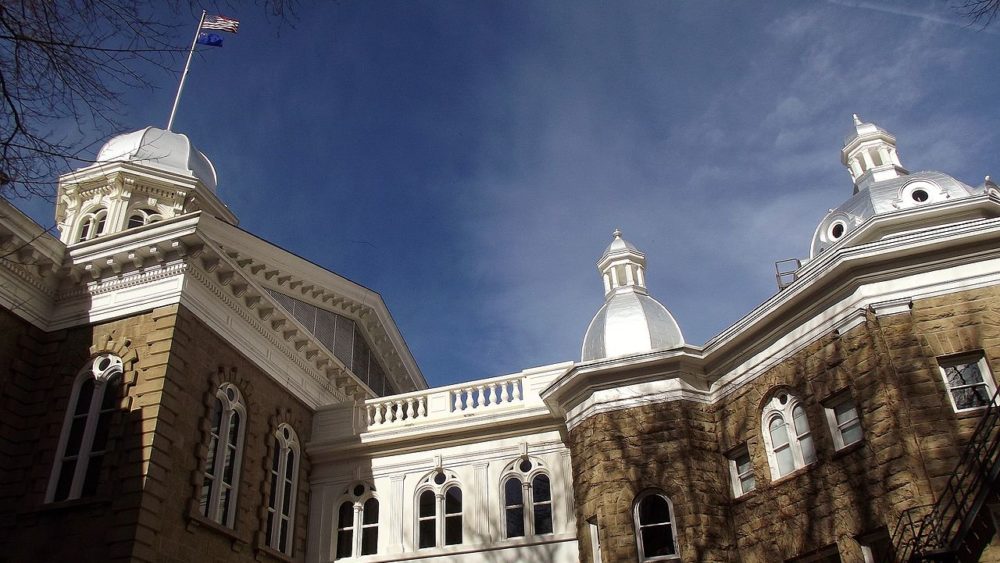
Nevada State Capitol Octagonal Annex
The Nevada Legislative Counsel Bureau activated the lobbyist registration function on their website due to the passage of Assembly Bill 110. Lobbyists will now be able to complete registration statements for the 81st Session of the Nevada Legislature. Pursuant to […]
The Nevada Legislative Counsel Bureau activated the lobbyist registration function on their website due to the passage of Assembly Bill 110.
Lobbyists will now be able to complete registration statements for the 81st Session of the Nevada Legislature.
Pursuant to Assembly Bill 110, a lobbyist must file a registration statement not later than 14 days after March 18, 2021, or not later than 2 days after the beginning of the person’s lobbying activity, whichever date is later.
A lobbyist must also include in the first report filed after March 18, 2021, information concerning the person’s lobbying activities during the period beginning on February 1, 2021, and ending on March 18, 2021.
Lobbyist registration statements and reports can be filed at https://www.leg.state.nv.us/Lobbyist.
March 19, 2021 •
Nevada Governor Signs Lobbying Bill

Nevada State Capitol Octagonal Annex
Gov. Steve Sisolak signed Assembly Bill 110, which revises the Nevada Lobbying Disclosure and Regulation Act. The bill changes the definition of a lobbyist by removing the requirement to appear in person at the Capitol building or any other building […]
Gov. Steve Sisolak signed Assembly Bill 110, which revises the Nevada Lobbying Disclosure and Regulation Act.
The bill changes the definition of a lobbyist by removing the requirement to appear in person at the Capitol building or any other building the Legislature or their committees hold meetings.
Currently, lobbying is taking place virtually because the legislative session is closed to all but lawmakers, essential staff, and some members of the media.
However, lobbyist registration has not taken place because the definition required in-person communication.
Assembly Bill 110 became effective upon being signed by the governor.
March 17, 2021 •
California Governor Newsom Expands Lobbying Ban
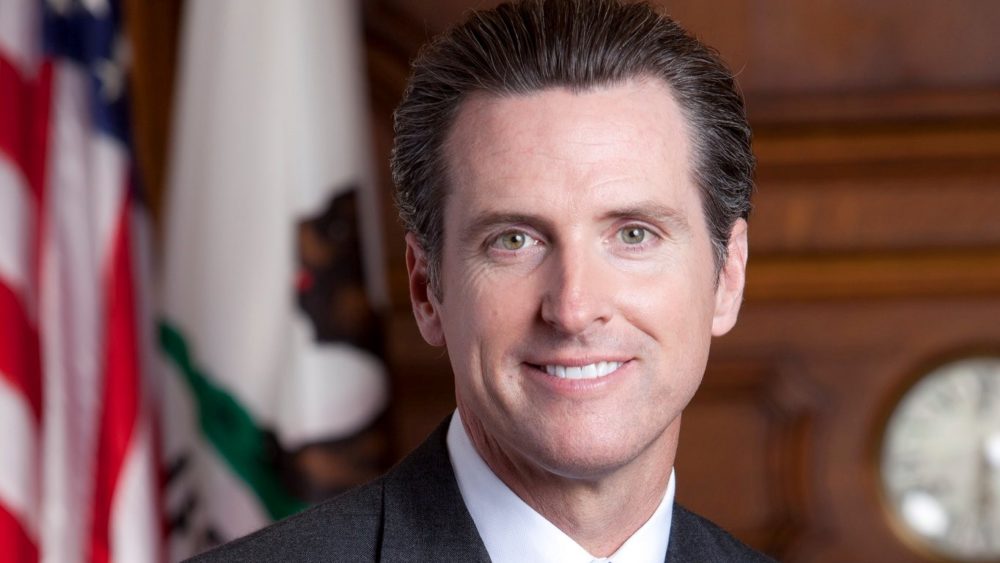
California Gov. Gavin Newsom
Gov. Gavin Newsom has expanded a ban on political consultants lobbying him and his administration to include unpaid advisers, based on recommendations from the Fair Political Practices Commission (FPPC). No consultant, whether paid or not, will be permitted to leverage […]
Gov. Gavin Newsom has expanded a ban on political consultants lobbying him and his administration to include unpaid advisers, based on recommendations from the Fair Political Practices Commission (FPPC).
No consultant, whether paid or not, will be permitted to leverage their relationship with the governor to unduly benefit a client in connection with legislative or administrative actions.
Under the new rules, appointees with a high level of influence over administration policy decisions are prohibited from accepting gifts from lobbyists.
The rule applies to the governor, his wife, senior officials, policy advisers, and any equivalent position.
The new rules also prohibit influential appointees from working on specific bills in their first two years if they worked on substantially similar bills in the two years prior to joining the Newsom administration.
It will apply to appointees who joined the administration after March 1, 2021.
March 15, 2021 •
Governor Newsom Announces Special Election
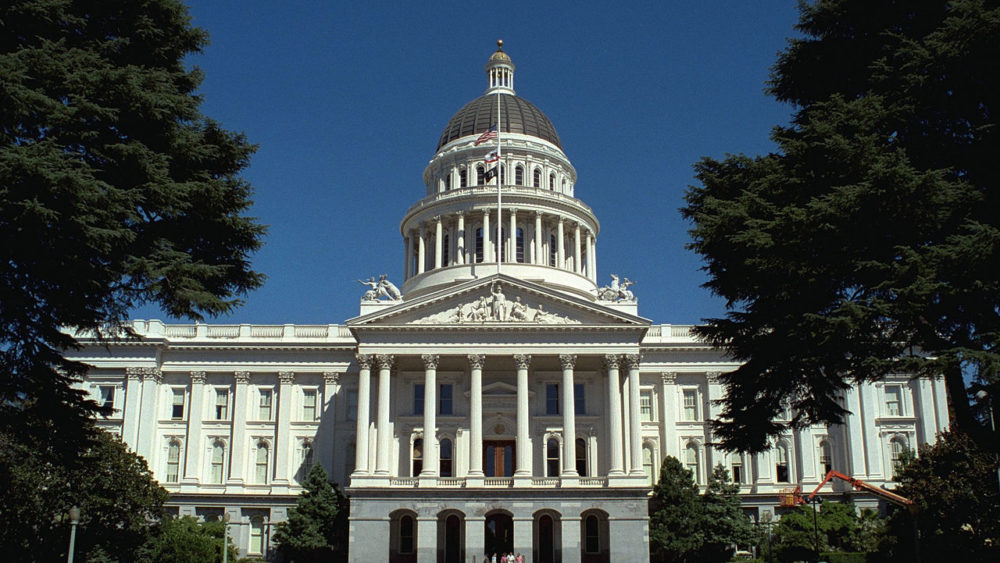
California Capitol Building
California Gov. Gavin Newsom issued a proclamation declaring a special election for the 54th Assembly District on July 20. The seat was vacated by Sydney Kamlager who was voted to Senate District 30. The special primary election will be held […]
California Gov. Gavin Newsom issued a proclamation declaring a special election for the 54th Assembly District on July 20.
The seat was vacated by Sydney Kamlager who was voted to Senate District 30.
The special primary election will be held on May 18.

Los Angeles from Santa Ana Freeway - by Pag293
The City Ethics Commission announced the mandatory annual adjustments to limits and thresholds in the city’s campaign finance laws. The new limits apply beginning with any city election for which the fundraising window opens after March 1, 2021. The per person […]
The City Ethics Commission announced the mandatory annual adjustments to limits and thresholds in the city’s campaign finance laws.
The new limits apply beginning with any city election for which the fundraising window opens after March 1, 2021.
The per person contribution limits for mayor, city attorney, and controller have been raised to $1,600.
The adjusted limits do not apply to elections for the Los Angeles Unified School District Board of Education.
February 24, 2021 •
Fair Political Practices Commission Updates Regulations on Local Contribution Limits

Sacramento, CA Skyline - Basil D Soufi
The Fair Political Practices Commission (FPPC) updated their regulations regarding local campaign contribution limits due to Assembly 571. The updates will add language to the regulations regarding candidates for elective city or county offices subject to the state contribution limits. […]
The Fair Political Practices Commission (FPPC) updated their regulations regarding local campaign contribution limits due to Assembly 571.
The updates will add language to the regulations regarding candidates for elective city or county offices subject to the state contribution limits.
Those local candidates and their committees will now be subject to the regulations regarding reporting of contributions and expenditures, establishing campaign accounts, solicitation of funds, loans, terminations, and other regulations related to campaign finance.
These regulations do not apply to candidates for an elective city or county office or the candidate’s controlled committee prior to January 1, 2021.
February 23, 2021 •
Oregon Lawmaker Resigns Amidst Harassment Accusations
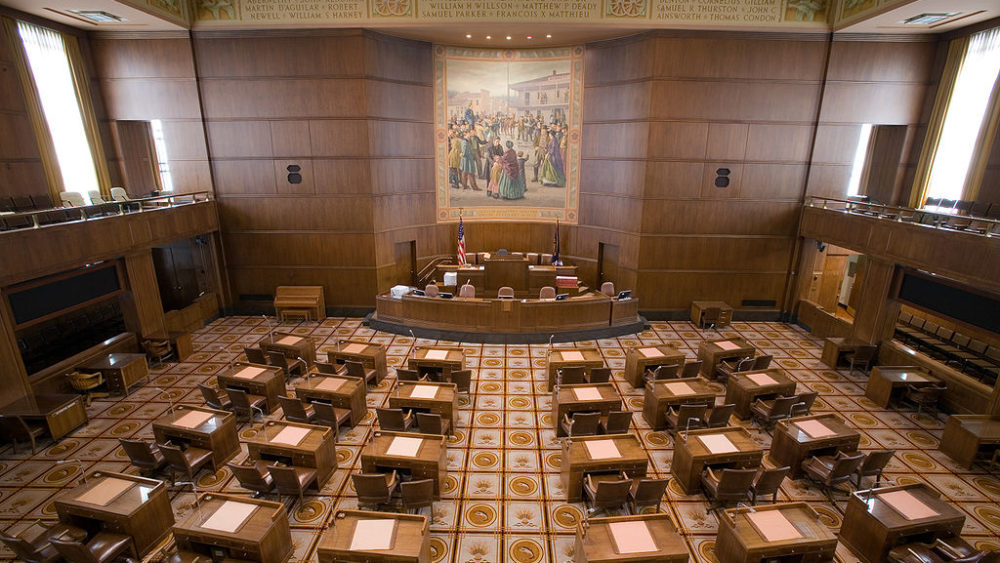
Oregon Senate Chamber - photo by Cacophony
A lawmaker facing expulsion from the state House of Representatives after women accused him of harassment is resigning. Rep. Diego Hernandez is stepping down to allow his colleagues to focus on serving Oregonians and to move forward with his life […]
A lawmaker facing expulsion from the state House of Representatives after women accused him of harassment is resigning.
Rep. Diego Hernandez is stepping down to allow his colleagues to focus on serving Oregonians and to move forward with his life and focus on his health and family.
The entire House was scheduled to vote as soon as Tuesday on whether to expel Hernandez.
This came after a panel of lawmakers determined he created a hostile work environment for three women.
It would have taken a two-thirds vote or 40 members of the House to expel him.
Earlier this month the conduct committee of the House had voted in favor of expelling Hernandez.
February 23, 2021 •
Montana House Introduces Bill to Eliminate the Office of the Commissioner of Political Practices
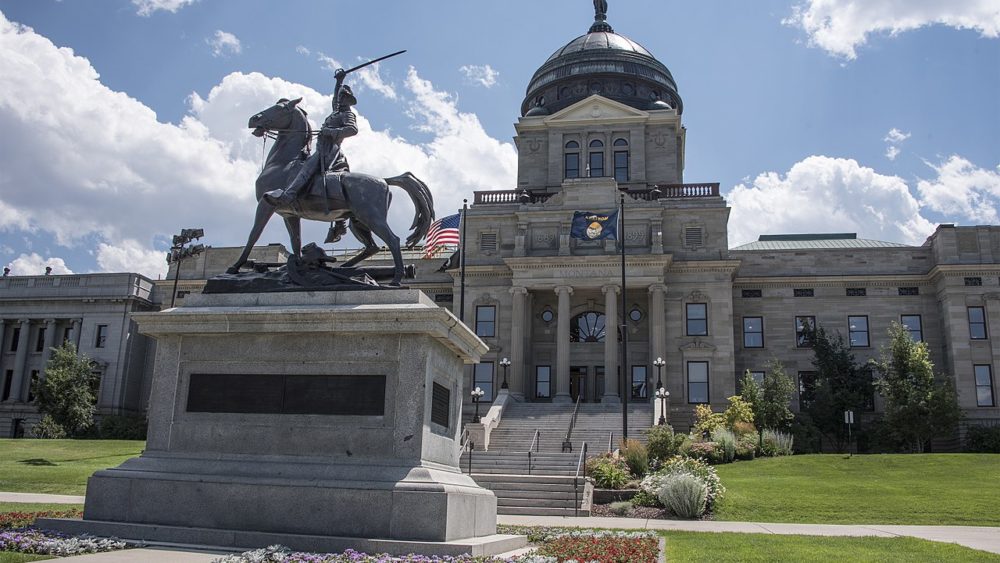
Montana Capitol Building - gillfoto
The House of Representatives introduced a bill eliminating the Office of the Commissioner of Political Practices. House Bill 535 establishes a Campaign Practices and Ethics Review Board appointed by the Speaker of the House of Representatives, the President of the […]
The House of Representatives introduced a bill eliminating the Office of the Commissioner of Political Practices.
House Bill 535 establishes a Campaign Practices and Ethics Review Board appointed by the Speaker of the House of Representatives, the President of the Senate, and the minority leaders.
The bill also transfers investigative duties and duties related to the filing of ethics, lobbying, and campaign finance report, statements, forms, and other documents to the Office of the Secretary of State.
Enforcement duties for ethics, lobbying, and campaign practices complaints will be transferred to the Campaign Practices and Ethics Review Board, the Attorney General, and county attorneys.
If passed, House Bill 535 becomes effective July 1, 2021.
February 19, 2021 •
Group of Activists Sues Nevada Legislature Over Closure of Capitol

Nevada State Capitol Octagonal Annex
Four conservative Nevada lobbyists are suing Gov. Steve Sisolak, Attorney General Aaron Ford, Legislative Counsel Bureau Director Brenda Erdoes, and Senate Majority Leader Nicole Cannizzaro. They argue they are suffering irreparable harm from COVID-19 prevention rules keeping the legislative session […]
Four conservative Nevada lobbyists are suing Gov. Steve Sisolak, Attorney General Aaron Ford, Legislative Counsel Bureau Director Brenda Erdoes, and Senate Majority Leader Nicole Cannizzaro.
They argue they are suffering irreparable harm from COVID-19 prevention rules keeping the legislative session largely virtual and barring lobbyists from entering the Legislative Building.
All four were registered lobbyists during the 2019 legislative session.
The complaint was filed in federal District Court.
The lawsuit seeks a court-ordered injunction to immediately allow plaintiffs access to the Capitol to engage in lobbying activities.
The complaint alleges the emergency orders limiting public access to the Legislature violates their constitutional rights to petition the government and free speech.
They also argue Nevada is no longer experiencing an emergency to justify the restrictions.
The 2021 legislative session has been closed to all but lawmakers, essential staff, and some members of the media.
However, officials have announced plans to vaccinate personnel next week and left open the possibility the format will relax later in the 120-day session.
Committee hearings are being conducted virtually, with lawmakers videoconferencing in from their offices rather than gathering together in committee rooms.
Lobbyists are allowed to make appointments with lawmakers through videoconference, although formal registration of lobbyists has not opened up and Assembly Bill 110 modifying lobbyist registration policies is pending.
State and Federal Communications, Inc. provides research and consulting services for government relations professionals on lobbying laws, procurement lobbying laws, political contribution laws in the United States and Canada. Learn more by visiting stateandfed.com.

